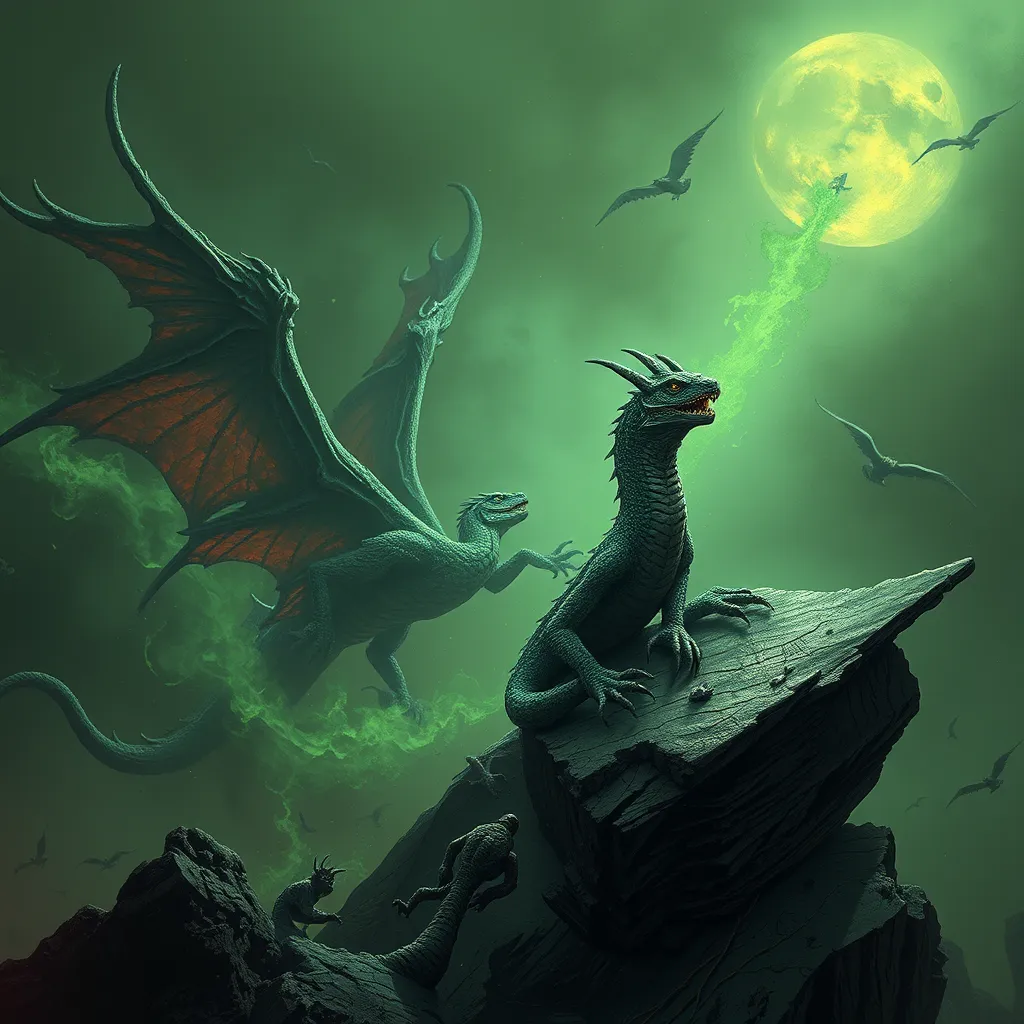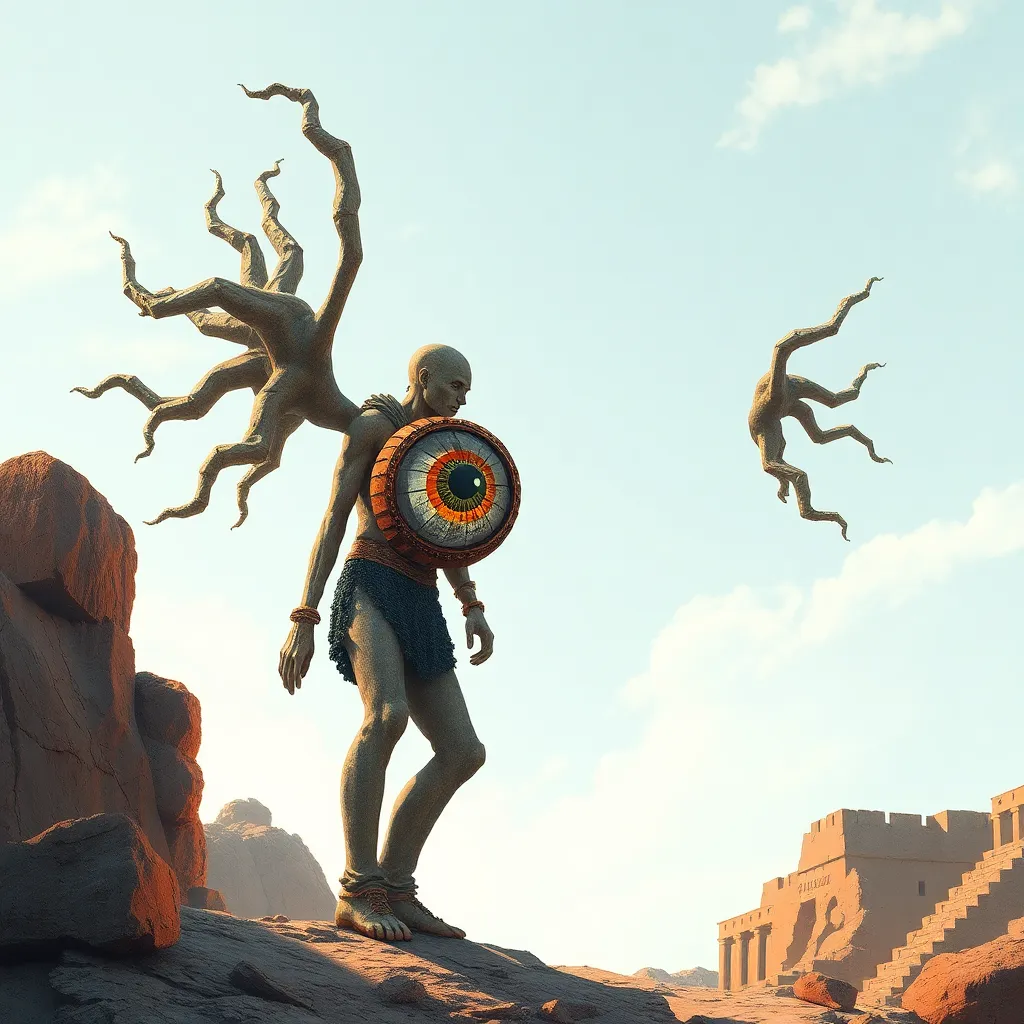The Oni’s Sacrifice: Investigating the Role of Oni in Chinese Rituals and Offerings
I. Introduction
The concept of Oni, often associated with malevolent spirits or demons in various East Asian cultures, has a nuanced presence in Chinese culture. While the term “Oni” is more commonly linked to Japanese folklore, its Chinese counterparts embody similar characteristics and significance, particularly in the realm of rituals and offerings.
Rituals and offerings play a crucial role in Chinese cultural practices, serving as a means of communication with the spiritual world, honoring ancestors, and seeking blessings. This article aims to explore the multifaceted role of Oni in these rituals, examining their historical context, cultural significance, and contemporary interpretations.
II. Historical Context of Oni in Chinese Mythology
A. Origins of Oni in ancient Chinese folklore
The origins of Oni can be traced back to ancient Chinese mythology, where they were often depicted as spirits that could bring misfortune or calamity. These entities were associated with natural disasters and societal upheaval, reflecting the fears and concerns of the people.
B. Evolution of the Oni’s character and symbolism
Over time, the character of Oni evolved from mere malevolent spirits to more complex figures embodying both good and evil. This duality is reflected in their roles within rituals, where they might be invoked for protection or to ward off negative influences.
C. Comparison with similar entities in other cultures
In examining the Oni, it is interesting to compare them with similar entities in other cultures. For instance:
- Yōkai in Japanese culture: Like Oni, Yōkai are spirits that can be benevolent or malevolent, often influencing the lives of humans.
- Demons in Western folklore: These entities are typically associated with evil and temptation, often used as symbols of moral lessons.
- Pre-Columbian spirits: Many indigenous cultures have similar spirit entities that require appeasement through rituals and offerings.
III. The Cultural Significance of Rituals and Offerings
A. Overview of rituals in Chinese traditions
Rituals in Chinese traditions encompass a wide range of practices, from ancestral worship to seasonal festivals. These rituals are integral to community cohesion and individual spirituality, often involving elaborate ceremonies.
B. The role of offerings in spiritual practices
Offerings serve as tangible expressions of respect and devotion. They are presented to deities, ancestors, and spirits, including Oni, to seek favor or protection. Common offerings include:
- Food items such as fruits and rice
- Incense and paper money
- Symbolic objects representing wishes or intentions
C. Symbolic meanings behind different types of offerings
Each offering carries its own significance. For instance, fruits symbolize prosperity and abundance, while incense represents purity and the connection between the physical and spiritual realms.
IV. The Oni’s Role in Rituals
A. Specific rituals involving Oni
Oni are often invoked during specific rituals aimed at cleansing, protection, and warding off evil spirits. One notable example is the Ghost Festival, where offerings are made to appease wandering spirits, including Oni.
B. The purpose of invoking Oni during ceremonies
Invoking Oni serves several purposes:
- To seek protection from malevolent forces
- To channel spiritual energy for healing
- To honor the balance of good and evil in life
C. Case studies of notable rituals featuring Oni
Case studies such as the Lantern Festival and the Qingming Festival highlight the Oni’s role in community gatherings. In these festivals, rituals may include lighting lanterns to guide spirits, including Oni, and offering food to ensure harmony between the worlds.
V. The Concept of Sacrifice in Oni Rituals
A. Definition of sacrifice in the context of Oni rituals
In the context of Oni rituals, sacrifice typically refers to the act of offering something valuable to appease or attract the attention of the Oni. This could be in the form of food, incense, or even symbolic sacrifices.
B. Types of sacrifices offered to Oni
Common types of sacrifices can include:
- Animal sacrifices, though rare, are sometimes performed during significant events.
- Vegetable and fruit offerings that symbolize fertility and abundance.
- Monetary offerings, often in the form of paper money.
C. The implications of sacrifice on community and spirituality
The act of sacrifice fosters a sense of community, as it often involves collective participation. It reinforces shared beliefs and strengthens communal ties, while also addressing individual spiritual needs.
VI. Contemporary Interpretations of Oni in Rituals
A. Modern adaptations of traditional rituals involving Oni
In contemporary society, many traditional rituals have been adapted to fit modern contexts. This can include simplified offerings or the incorporation of new elements that resonate with younger generations.
B. The role of Oni in contemporary Chinese spiritual practices
Today, the Oni continues to be relevant in various spiritual practices, often representing the duality of human nature and the balance between good and evil. Spiritual workshops and community gatherings may include discussions about Oni and their significance.
C. Influence of globalization on the perception of Oni
Globalization has led to a blending of cultures, resulting in varied interpretations of Oni. While some practices remain rooted in tradition, others have evolved to incorporate influences from different cultures, leading to a more diverse understanding of these entities.
VII. Critical Perspectives and Controversies
A. Debates surrounding the interpretation of Oni in rituals
Scholars and practitioners often debate the meanings and interpretations of Oni within rituals. Some argue that traditional views should be preserved, while others advocate for a more dynamic understanding that reflects contemporary issues.
B. Ethical considerations regarding offerings and sacrifices
The ethical implications of offerings, especially animal sacrifices, have sparked discussions about cultural practices vis-à-vis animal rights. Many communities are re-evaluating their practices to align with modern ethical standards.
C. The impact of cultural appropriation on the understanding of Oni
Cultural appropriation has also influenced the understanding of Oni, leading to misinterpretations and oversimplifications of their role in rituals. It raises questions about authenticity and respect for cultural practices.
VIII. Conclusion
In summary, the Oni plays a significant role in Chinese rituals and offerings, embodying themes of protection, duality, and community. Their presence in both historical and contemporary contexts highlights their enduring relevance in Chinese culture. As we continue to explore the complexities of these spiritual entities, further research could provide deeper insights into their roles and meanings.



